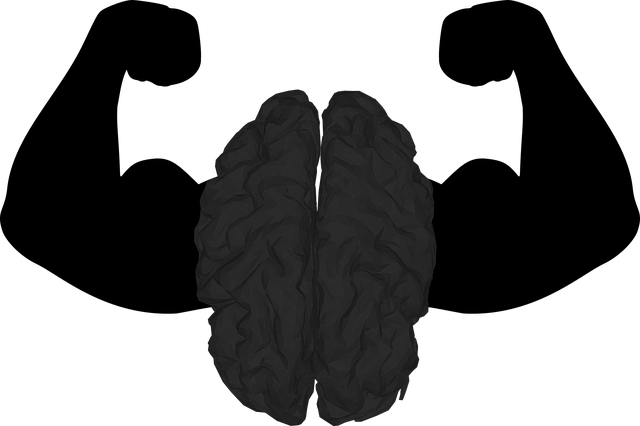Diagnosing mental illness accurately is challenging due to individual psychology's complexity and varied symptoms, including interpersonal issues that can be difficult to identify. Westminster Interpersonal Issues Therapy (WIIT) offers a solution by focusing on communication, relationships, and social skills, addressing interpersonal challenges linked to mental distress. Integrating WIIT into diagnostic processes allows healthcare professionals to gain deeper insights into patients' life experiences and social dynamics, improving diagnosis accuracy. Additional services like Trauma Support, Social Skills Training, and Mental Wellness Coaching can be seamlessly incorporated for comprehensive, personalized treatment. This holistic approach, advocating patient feedback and cultural competence training, significantly enhances diagnosis accuracy, care quality, and mental health outcomes.
Mental illness diagnosis accuracy is a critical aspect of patient care, yet it faces significant challenges. This article explores strategies to enhance diagnostic precision, focusing on the role of innovative approaches like Westminster Interpersonal Issues Therapy (WIIT). We delve into understanding diagnostic hurdles and present a comprehensive strategy that includes integrating patient feedback and cultural competence in mental health assessment. By adopting these methods, healthcare professionals can strive for more accurate diagnoses, leading to improved treatment outcomes.
- Understanding Diagnostic Challenges and the Role of Westminster Interpersonal Issues Therapy
- Strategies for Enhancing Diagnosis Accuracy: A Comprehensive Approach
- Integrating Patient Feedback and Cultural Competence in Mental Health Assessment
Understanding Diagnostic Challenges and the Role of Westminster Interpersonal Issues Therapy

Diagnosing mental illness accurately is a complex task due to the multifaceted nature of human psychology and the wide range of potential symptoms. Interpersonal issues often play a significant role in an individual’s mental health, yet they can be difficult to identify and assess. This is where Westminster Interpersonal Issues Therapy (WIIT) steps in as a valuable tool. WIIT focuses on improving communication, relationships, and social skills, addressing the interpersonal challenges that frequently contribute to mental distress.
By integrating WIIT into diagnostic processes, healthcare professionals can gain deeper insights into a patient’s life experiences and current social dynamics. This approach not only enhances the accuracy of diagnoses but also ensures that treatment plans are tailored to address the unique needs of each individual. Furthermore, Trauma Support Services, Social Skills Training, and Mental Wellness Coaching Programs Development can be integrated within WIIT to offer comprehensive support for patients facing diverse mental health challenges.
Strategies for Enhancing Diagnosis Accuracy: A Comprehensive Approach

Improving mental illness diagnosis accuracy requires a multifaceted approach that addresses various aspects of assessment and treatment. One key strategy is to integrate comprehensive interpersonal issues therapy, such as that offered by Westminster Interpersonal Issues Therapy, into standard diagnostic protocols. This therapeutic model focuses on understanding the complex interplay between individuals’ thoughts, emotions, and relationships, providing valuable insights that can enhance diagnosis accuracy.
Furthermore, incorporating evidence-based practices like Stress Management Workshops Organization programs, Compassion Cultivation Practices, and Mental Wellness Coaching Programs Development can significantly contribute to more precise diagnoses. These initiatives not only equip individuals with coping mechanisms but also foster self-awareness and emotional resilience, making it easier for healthcare professionals to identify and interpret symptoms. A holistic approach that blends interpersonal therapy with these complementary practices promises a significant improvement in diagnosis accuracy and overall mental health outcomes.
Integrating Patient Feedback and Cultural Competence in Mental Health Assessment

Integrating patient feedback into mental health assessments is a significant step towards enhancing diagnosis accuracy and improving overall care. By actively involving individuals in their treatment process, healthcare professionals can gain valuable insights into their unique experiences and perspectives. This approach, coupled with cultural competence training, allows for a more nuanced understanding of interpersonal issues that may impact mental illness presentation and perception.
Westminster Interpersonal Issues Therapy emphasizes the importance of considering cultural backgrounds and personal histories when assessing mental health. Cultural competence ensures that assessment tools and techniques are sensitive to diverse populations, reducing potential bias or misdiagnosis. Moreover, encouraging open dialogue between patients and therapists fosters an environment of trust, enabling individuals to disclose pertinent information related to their mental illness. This integration of patient feedback and cultural awareness contributes to the ongoing efforts of Mental Illness Stigma Reduction and enhances the effectiveness of Crisis Intervention Guidance.
Mental health diagnosis accuracy has long been a complex issue, but with strategies like Westminster Interpersonal Issues Therapy, we can significantly enhance assessment methods. By integrating patient feedback and cultural competence, we ensure more precise diagnoses, tailored treatments, and improved patient outcomes. These comprehensive approaches are vital steps towards revolutionizing mental health care.













